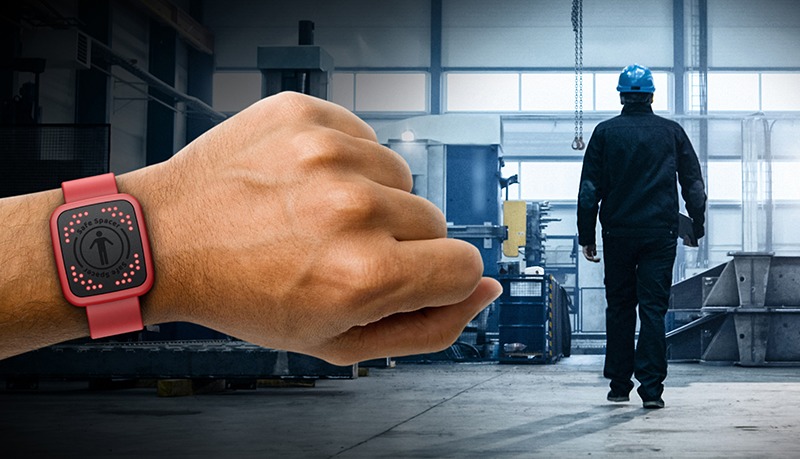Across the world, as vaccine rollout accelerates and people start returning to work, employers are grappling with making their workplaces safe from COVID-19. Many are turning to wearable technology to maintain social distancing and safety among their employees.
Read more Safe Spacer Wearable Helps Workers And Others Maintain Social Distance Amid COVID-19 Outbreak
Wearable tech in the workplace is not new. According to a report by PwC, more than 75 million wearables have been used in the workplace in 2020. In the US, approximately 90% of companies now operate “wellness programs” for their employees which include competitions and team building to improve fitness and increasingly use wearable technology to record results.
Fitbit announced a new Ready for Work solution amid the pandemic. The solution gives employees access to key health metrics from their Fitbit device along with exposure, symptom, and temperature logging, all within an easy-to-use Daily Check-In feature that provides employees with guidance on whether to go into the workplace. Daily reporting and analytics enable employers to quickly assess and monitor workplace health and safety and provide support for employees.
Other wearable makers like Halo, Nymi, Modjoul, Kinetic, Estimote, and Safe Spacer developed wearables to ensure employees’ safe return to work. US Air Force’s innovation-pushing startup AFWERX is planning to buy around 10,000 wearable devices that can pinpoint and tip-off personnel of potential COVID-19 infections early on.

However, there are challenges that wearables must overcome. Many employees will naturally be uncomfortable about having their activity monitored in this way. They may find it intrusive or unreasonable, especially if they suspect data could be used in a disciplinary context, reports People Management.
Employers must clearly state why they’re using the wearable device. Is it to track whether social distancing guidelines are being adhered to, for example, or is it to prevent the spread of COVID-19?
HIPAA too may apply to wearables and their collection of health-related data when related to the operation of a group health plan. Employers will need to consider the implications of this popular set of privacy and security standards.
As wearable technology develops, it may eventually provide a viable solution for many employers to help detect COVID-19 symptoms early, and to enforce social distancing measures to reduce the risk of infection in the workplace.
Read more Nymi Launches Wearable Wristband For Health and Safety of Workers
If used properly, wearable technology could be a vital part of ensuring our safe return to workplaces and in the long run it may help protect employee health and wellbeing.









